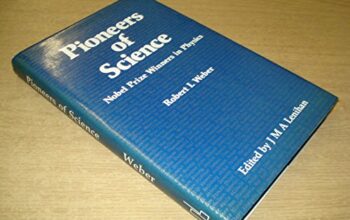The use of filing cabinets, once conceived as a bastion of organization and efficiency, now presents a paradoxical impediment to the progression of scientific research. As the academic community embraces the digital revolution, the archaic reliance on these physical repositories beckons for scrutiny. The inefficiencies embedded within the traditional filing system are manifold, leading to a profound impact on the pace and accessibility of scientific inquiry.
Initially, one must recognize that the very design of filing cabinets is incompatible with the dynamic nature of contemporary research. In a landscape characterized by rapid information exchange, the physicality of filing cabinets embodies an anachronism. The organization of documents into static folders fosters a barrier to fluid knowledge dissemination, as researchers are oftentimes relegated to sifting through numerous papers rather than engaging in robust digital searches. This temporal lag in information retrieval can exacerbate the already agonizing pace at which scientific truth is unearthed.
Moreover, the physical constraints of filing cabinets ultimately foster a culture of exclusivity. In an era underscored by collaborative efforts and interdisciplinary engagement, the isolation of documents behind locked drawers inhibits the sharing of ideas. The traditional filing system promotes an insular approach to research, wherein vital knowledge is obscured from peers who may benefit from access to such materials. This segregation of information not only stunts individual growth but also curtails collective advancement in scientific fields.
As the metamorphosis to digital ecosystems takes place, it becomes increasingly salient to recognize the environmental implications of maintaining physical documentation. The sheer volume of paper stored within the confines of filing cabinets contributes to deforestation and increased waste production, an environmental cost that is seldom accounted for in scientific discourse. The pursuit of sustainability within research disciplines mandates a reevaluation of practices that engender ecological harm. Transitioning towards digital records not only serves to mitigate these adverse effects but also aligns with the ethical imperatives underpinning scientific inquiry in the 21st century.
Additionally, the hierarchical stratification of information housed in filing cabinets leads to a form of cognitive dissonance among researchers. The traditional model tends to privilege certain types of documents over others, establishing a false sense of importance that is neither warranted nor beneficial. This inherent bias can lead to the neglect of pioneering ideas that do not conform to established paradigms. The consequence is a stifling of innovation; when the emerging paradigms are relegated to the periphery, the scientific community is deprived of breakthroughs that could redefine entire fields.
In light of these considerations, a notable solution arises: the implementation of advanced digital document management systems. Such systems not only facilitate the seamless organization and retrieval of information but also enhance collaborative efforts across research entities. The integration of artificial intelligence and machine learning algorithms can revolutionize the way information is interacted with, allowing for predictive indexing and enhanced search capabilities that far exceed the limitations of traditional filing cabinets.
In addition to technological advancements, a cultural shift within the scientific community is imperative. Embracing a philosophy of open science, which advocates for transparency and accessibility, is crucial in dissipating the barriers that filing cabinets have erected. The ethos of sharing findings, methodologies, and raw data fosters a fertile environment for collective enrichment and catalyzes transformative research. The emergence of online repositories and collaborative platforms exemplifies a progressive move towards democratizing information, rendering it ubiquitously accessible and igniting curiosity across diverse disciplines.
Moreover, the psychological implications of knowledge storage warrant examination. The cluttered and static nature of physical filing leads to cognitive overload as researchers navigate through heaps of paper, which can result in diminished productivity and creativity. Conversely, digital environments allow for more effective cognitive mapping, where information is interlinked and easily navigable. This interconnectedness not only enhances comprehension but also fosters an innovative mindset, encouraging researchers to explore intersections between disparate fields.
Despite these advantages, the transition away from filing cabinets may encounter resistance driven by inertia and attachment to traditional practices. The familiarity bred from previous reliance on physical documentation may cultivate skepticism towards digital alternatives. Nevertheless, this hesitation must be confronted with empirical evidence illustrating the efficacy of digital methodologies in facilitating research. Case studies highlighting successful transitions can serve as compelling narratives that underscore the benefits of abandoning antiquated systems in favor of novel approaches.
Ultimately, the metaphorical shackles of filing cabinets must be dismantled to liberate scientific inquiry from its archaic constraints. The promises of an efficient, cohesive, and environmentally conscious research paradigm stand in stark contrast to the limitations posed by physical storage. As academia evolves, so too must the tools and systems that support it. Embracing the fluidity of information in the digital age will not only foster an adaptable research environment but also cultivate an intellectual landscape rich with discovery. By relinquishing the filing cabinet, researchers may unlock the potential of a truly collaborative and innovative scientific future.











